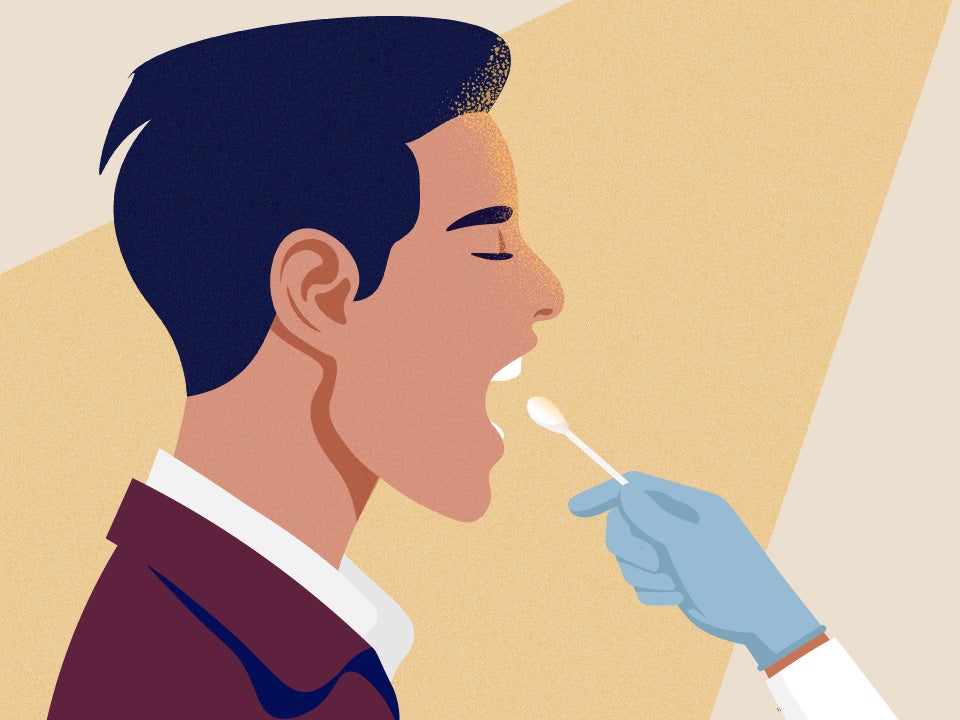Common Dental Problems
When it comes to your oral health, knowledge is power. Learning about the common dental problems you might face could help you take steps to protect your dental health. On the other hand, having a lower level of oral health knowledge may be a risk factor for developing cavities and gum disease, according to research published in the Journal of the American Dental Association.
Gum disease - When plaque isn’t removed, it can harden into tartar. Tartar that collects above your gum line can irritate the tissue, resulting in gum disease.
Sensitive teeth- Sensitive teeth may be painful when you eat or drink something hot, cold, acidic, or sticky. This pain happens when tooth enamel wears away, exposing the sensitive layer of dentin underneath. Cavities, gum disease, and worn-out fillings are a few possible causes of tooth sensitivity.
Toothaches - A toothache is pain you feel in or around your tooth. Cavities are the main cause of toothaches. Many other dental problems may cause a toothache, such as an injury to the tooth or an infection in the gums.
Chipped teeth
- When you chip a tooth, a piece of your tooth enamel breaks off. This could happen if you clench your teeth or chew on hard objects, such as ice. Chipped teeth are common: they make up the majority of dental injuries.
Different Treatments
Fillings - Fillings are used to repair cavities. Your dentist may offer several different materials, such as amalgam (silver-colored) fillings or composite resin (tooth-colored) fillings.
Crowns - A crown is a tooth-shaped cap that’s cemented on top of a damaged tooth to restore its look or function. A crown may be made of several materials, including gold or tooth-colored porcelain. Your dentist may recommend a crown if you have a cracked tooth or a large cavity.
Root canals - Root canal treatment may be used to save an infected tooth. The procedure involves removing the pulp inside your tooth and then sealing the inside of the tooth with filling material. After a root canal, your dentist may recommend a crown to protect the tooth.
Tooth extractions. Sometimes, it may be necessary to have a tooth extracted (pulled). Your dentist might recommend pulling a tooth if it’s too damaged or decayed to fix with other treatments.
Dental cleanings- Routine teeth cleanings can help you prevent oral health problems. A thorough cleaning beneath the gum line, known as scaling and root planing, may be necessary to treat gum disease.
Dental bonding - Teeth bonding is a cosmetic procedure that involves attaching tooth-colored materials directly to your tooth. It may be used to fix chipped or broken teeth.
Mouth-Body Connection
Taking good care of your teeth and gums does more than help you achieve whiter teeth and fresher breath. Your oral health may have an impact on the rest of your body and vice versa. The mouth-body connection is so strong that Mayo Clinic has called oral health “a window to your overall health.”
- Gastroesophageal reflux disease (GERD). Acid reflux may wear away at the tooth enamel, and the resulting tooth erosion may be noticeable to your dentist.
- Vitamin deficiencies. Oral health clues may help your dentist identify vitamin deficiencies. For instance, gum disease or mouth ulcers could be signs of a vitamin B12 deficiency.
- Crohn’s disease. Oral changes may be the earliest symptom of Crohn’s disease. Changes your dentist may notice include oral ulcers or swollen oral tissues.
On top of that, your Dentist can diagnose Periodontal Disease which can lead to or increase your risk of
- Diabetes. Diabetes may cause poor gum health. If you have symptoms of gum disease, such as bleeding or swollen gums, your dentist may encourage you to see your doctor.
- Heart Disease that could lead to a heart attack
- Dementia such as Alzheimer's Disease
- Complications in Pregnancy such as Pre-term Low Weight Birth
Inflammation is the root cause of all major diseases. A good oral hygiene routine and regular dental visits may help you protect your oral health — and your overall health. Click here to learn more about the 32 reasons you need to know more about the Mouth-Body Connection.
New Year, New Goals
Developing SMART Goals
- Specific. Be clear about what you want to accomplish and why. The more detail, the better.
- Measurable. Assign a trackable unit to your goal, such as the number of times you take a specific action.
- Action-Oriented. Describe the actions you’ll take to work toward your goal.
- Realistic. Setting realistic goals means your goals are targets you’re both willing and able to achieve.
- Timed. Identify when you’ll start and when you want to achieve your goal.
- My dentist helped me identify a vitamin B12 deficiency. Starting January 1, I’ll eat foods that contain vitamin B12 at every meal, and I’ll follow up with my doctor in three months to check my progress.
- My dentist helped me get an early diabetes diagnosis, and my doctor said exercising could help me control it. Starting January 1, I’ll walk around my neighborhood for 30 minutes on Monday, Wednesday, and Friday evenings.
New Year, New Benefits
If you don’t have a dental plan, getting new benefits may be the best New Year resolution. The Smile Generation Dental Plan is a discount dental plan that may help members save money on the dental treatment they need. It’s accepted in all Smile Generation-trusted offices in 25 states.
Find a Dentist to Kickstart Your Health
Whether you want to floss more, get a whiter smile, or take better care of your teeth, your dentist can help you work toward your oral health goals for the New Year. To find a dentist near you to kickstart your health, check out our Find a Dentist tool. You can browse Smile Generation-trusted dentists in your area and book your first appointment online.
Find your trusted, local dentist today!
Sources
- https://jada.ada.org/article/S0002-8177(17)30347-1/fulltext
- https://www.mouthhealthy.org/en/az-topics/p/plaque
- https://www.cdc.gov/oral-health/data-research/facts-stats/fast-facts-cavities.html
- https://www.mayoclinic.org/first-aid/first-aid-toothache/basics/art-20056628
- https://www.aae.org/patients/dental-symptoms/cracked-teeth/
- https://www.mouthhealthy.org/en/az-topics/s/scaling-and-root-planing
- https://today.yougov.com/topics/lifestyle/articles-reports/2020/12/23/2021-new-years-resolutions-poll
- https://www.va.gov/WHOLEHEALTHLIBRARY/tools/how-to-set-a-smart-goal.asp
- https://www.mayoclinic.org/healthy-lifestyle/adult-health/in-depth/dental/art-20047475
- https://www.aafp.org/afp/2010/1201/p1381.html
- https://www.todaysrdh.com/vitamin-deficiencies-noting-the-oral-health-clues-present-in-the-mouth/
Smile Generation blog articles are reviewed by a licensed dental professional before publishing. However, we present this information for educational purposes only with the intent to promote readers’ understanding of oral health and oral healthcare treatment options and technology. We do not intend for our blog content to substitute for professional dental care and clinical advice, diagnosis, or treatment planning provided by a licensed dental professional. Smile Generation always recommends seeking the advice of a dentist, physician, or other licensed healthcare professional for a dental or medical condition or treatment.








